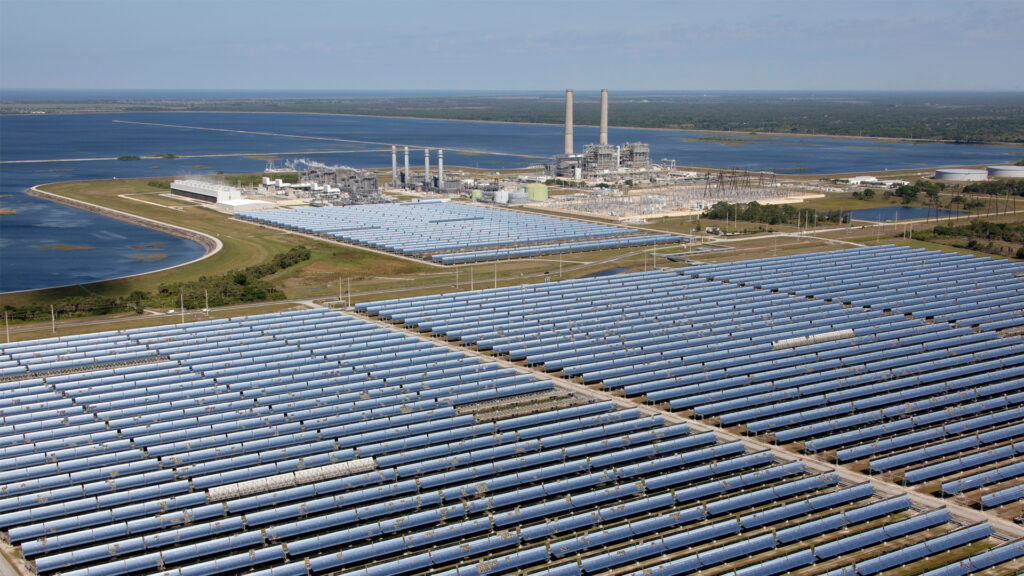By Bella Kubach, Citizens’ Climate Lobby
On May 22, the U.S. House of Representatives voted to pass a budget bill that drastically cuts America’s clean energy tax credits. I’m disappointed to see that the House advanced this legislation.
Make no mistake: These cuts will hurt Florida if they go on to become law. Experts are already warning that these changes would raise energy costs for American households, increase pollution and threaten growing economic investments we’ve seen in the Sunshine State. The House passage of this bill just put these investments at risk.
Federal tax credits — designed to boost clean energy manufacturing in the U.S. — have been working. Since the passage of the Inflation Reduction Act in 2022, Florida has benefited from $603 million in clean energy and transportation investments, 2,500 new jobs and 123 new clean energy and transportation facilities.

Though the tax credits that spurred this were passed by Democrats, they have overwhelmingly benefited Republican-held districts – 78% of the funding has gone to rural and suburban areas held by the GOP. That includes Florida, where Florida Power and Light (FPL) and JinkoSolar have announced major investments thanks to the tax incentives.
But that success story could unravel quickly. The legislation is now in the Senate’s hands, and the House passage has set them on a path toward drastic cuts.
If the cuts become law, energy prices will rise. Rolling back these tax credits means Florida ratepayers will face electricity prices that are almost 10% higher in the coming years.
Florida installed the second-most solar power capacity in the country in 2024 and is on track to become the top-ranked residential solar state in 2028. That success will stall if the proposed rollbacks make their way to the president’s desk.
It will be a real blow to Florida residents who have been using tax credits to make rooftop solar affordable and cut their energy bills. Not only do these incentives make it easier for homeowners to install solar panels and save money, they also help stabilize our power grid.
Long-term projects that have increased production capacity and created hundreds of jobs, such as JinkoSolar’s expanded solar module plant in Jacksonville, were bolstered by tax incentives.
FPL has a “30-by-30” initiative that aims to install over 30 million solar panels by 2030, totaling more than 11,000 megawatts of solar energy generation across the state. It relies heavily on federal tax credits. Those benefits — and the local businesses that depend on them — are in jeopardy if Congress moves forward with these cuts. Manufacturing will slow without them.
Encouragingly, a growing number of Republican members of Congress are vocalizing their support for the clean energy tax credits. Four Republican senators recently sent a letter to leadership last month saying repeal would “lead to significant disruptions for the American people and weaken our position as a global energy leader.” Sens. Rick Scott and Ashley Moody must join the effort to protect them.

It’s clear that protecting clean energy tax credits would be a huge boost to Florida’s economy over the next decade. An analysis by American Clean Power and ICF estimates that continuing clean energy incentives will spur an estimated $36 billion economic boost and support 57,200 full-time jobs in Florida annually. That’s not hypothetical — that’s real money and real livelihoods for Florida residents.
Florida is making great progress toward a cleaner, more sustainable energy future.
The evidence is clear: Clean energy tax credits are working for Florida. Undoing them now — as the House just voted to do — would be reckless and harmful. I urge Sens. Scott and Moody to work with their colleagues in the Senate to protect these tax credits.
Bella Kubach is a communications intern for Citizens’ Climate Lobby, a nonprofit, grassroots climate advocacy organization, and is currently studying for a master of arts in global sustainability at the University of South Florida. Banner photo: FPL’s DeSoto Next Generation Solar Energy Center. (ASCOM Prefeitura de Votuporanga, CC BY 2.0, via Wikimedia Commons).
Sign up for The Invading Sea newsletter by visiting here. To support The Invading Sea, click here to make a donation. If you are interested in submitting an opinion piece to The Invading Sea, email Editor Nathan Crabbe at nc*****@*au.edu.




Great research Bella. I was told that FPL would have the same goal regardless of the tax credits. What do you think? Jeff Dorian or***************@***il.com